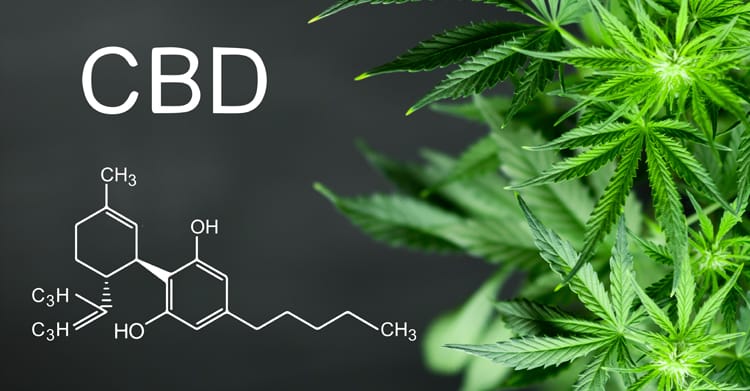Is CBD likely to become a prescription medicine?

Cannabidiol (CBD) is the wellness product that has helped to generate a huge wave of interest about cannabis and hemp, and its medicinal potential. For many years, there has been speculation about the therapeutic effects of marijuana, but the caveat is that users had to get ‘high’ to benefit from it. But researchers now have a much more developed understanding of cannabis and the naturally occurring compounds in the plant, including – and perhaps most importantly – CBD.
CBD is possibly best-known for what it doesn’t do, rather than what it does! It has no intoxicating effects and isn’t psychoactive. This is the case whether taking a high or low dose, and if it’s smoked, vaped, eaten or applied to the skin. As a non-intoxicating substance, CBD holds appeal to all demographics. Just like any drug, if it’s safe and comes with few side effects, people are more inclined to use it. And there are signs that CBD has widespread benefits.
The endocannabinoid system
One reason CBD could be part of a new era of medicine is how it affects the body. CBD is unique, reacting with the endocannabinoid system (ECS), a grouping of receptors and neurotransmitters that biologists say humans have evolved with, so that we can benefit from cannabis. CBD’s influence on the ECS is profound, and has been key to determining the compound’s effect. Before the ECS was found in the 1990s, experts could not explain why CBD produced its therapeutic effects.
Now, we are aware that CBD regulates cannabinoid receptors. This helps to alleviate inflammation, balance mood and appetite, regulate the bone formation and sleep-wake cycles, improve cognitive function and reproductive health, and more. Our ECS knowledge is growing all the time. So far, just two cannabinoid receptors have been confirmed, but some scientists speculate that a third receptor – known as the GPR-55 receptor at present – may also be part of the ECS.
The ECS puts a solid foundation to the medical claims about CBD. Critics often accuse CBD of being a 21st century version of snake oil, questioning why it has emerged now, and why there is so little clinical evidence about its benefits. But this can be explained by cannabis research being a relatively recent scientific venture. Just because there is a lack of studies doesn’t mean CBD isn’t effective. It simply means we need more research.
CBD’s current legal status
Wholesale CBD products have been legal in the United States since 2014, with a couple of crucial footnotes. The CBD used must be taken from the hemp plant, and not cannabis. The product must also have less than 0.3% THC, to ensure that it doesn’t cause any psychoactive effects.
Some brands have opted to remove all THC from their products, to give users full assurance and peace of mind with workplace drug tests. Others have looked to maximize this limit, using whole-plant hemp extracts with a low concentration of THC.
Research suggests that full-plant extracts are more therapeutic than products with isolated extracts. More studies are needed on this so-called ‘entourage effect’, but advocates of this have won favor with those in the natural health side of the debate, who argue that the cannabis plant is fine as it is, and doesn’t need to be manipulated.
The CBD market is certainly flourishing, but as of 2019, is not regulated by the Food and Drug Administration (FDA). Products cannot be sold as medicines, and are instead labelled as food supplements. This restricts the claims that companies can make about CBD, with prospective users having to do their own research.
What’s next?
Right now, the only CBD drug approved for medical use in the US is Epidiolex, an oral epilepsy treatment created by GW Pharmaceuticals. The process for a new drug to achieve FDA approval is painstaking, with several clinical trials to go through. This shows that CBD has a long way to go until doctors are able to prescribe it to patients for various conditions.
However, the demand for this clinical research is higher than ever. Many prescription drugs are causing problems; none more notorious than opioid painkillers, which are laden with side effects and very addictive. CBD is also a possible antidepressant, another field of medicine seeking new treatments due to the gradually declining effectiveness of SSRIs.
Politically, the case for cannabis and CBD is moving in the right direction. Public support continues to grow, and increasing acceptance of marijuana will likely spur on CBD research, too. The next decade could see more progress than any of us can anticipate.


